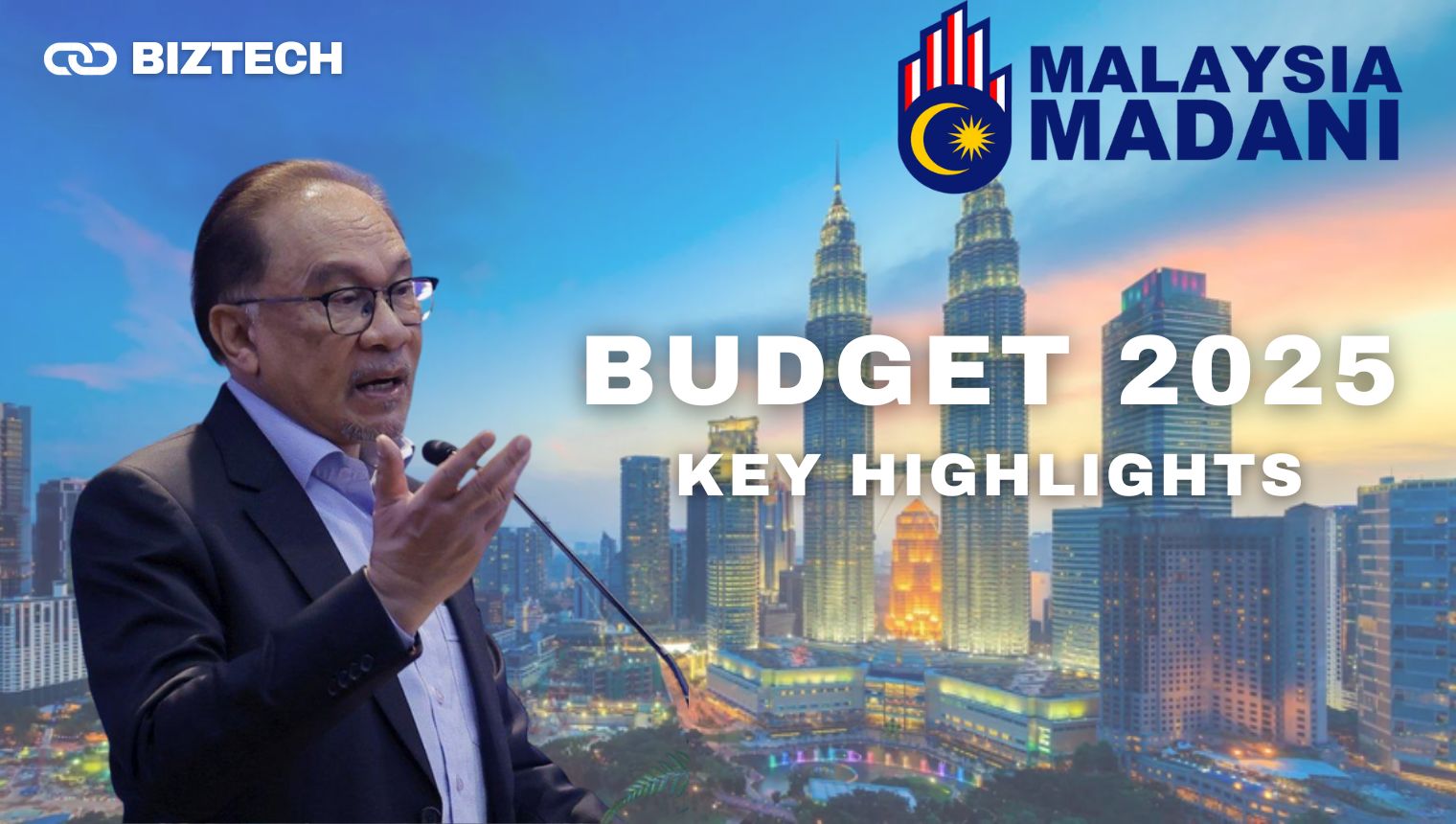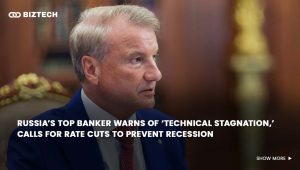Stay connected with BizTech Community—follow us on Instagram and Facebook for the latest news and reviews delivered straight to you.
Prime Minister Datuk Seri Anwar Ibrahim unveiled Malaysia’s 2025 Budget on October 18, marking a historic moment in the nation’s economic strategy with an unprecedented allocation of RM421 billion. This budget, themed ‘Membugar Ekonomi, Menjana Perubahan, Mensejahtera Rakyat’ (Reinvigorating the Economy, Driving Reforms, and Prospering the Rakyat), focuses on sustainable economic growth, social welfare, and fiscal discipline, addressing immediate socio-economic challenges while preparing Malaysia for long-term prosperity.
Economic Outlook and Growth Projections
The 2025 budget reflects Malaysia’s commitment to revitalizing the economy and addressing issues like inflation and the rising cost of living. The economy is projected to grow by 4.5% to 5.5% in 2025, with growth fueled by strong domestic demand and strategic investments in technology, manufacturing, and renewable energy. These investments are set to generate higher wages and employment opportunities, ultimately raising living standards and easing post-pandemic economic pressures.
Historic Allocation and Development Expenditure
With an allocation of RM421 billion, a 6.9% increase from 2024, RM335 billion is directed toward operating expenditures, and RM86 billion is set aside for development projects, along with an additional RM2 billion in contingency savings. This balanced allocation demonstrates a commitment to meeting immediate needs while investing in long-term infrastructure, healthcare, and education.
Strengthening Social Welfare
Key social welfare measures include an increase in the minimum wage from RM1,500 to RM1,700 per month, effective February 2025, helping low-income workers manage the rising cost of living. Additional initiatives include cash assistance programs—such as RM600 for single Malaysians—and RM150 million for infrastructure improvements to combat flash floods, reinforcing social safety nets for vulnerable populations.
Boosting Investments with New Incentives
To attract investment, the budget introduces a new Investment Incentive Framework targeting high-value sectors like AI, robotics, and sustainable technology. This framework includes special tax incentives and RM40 billion in loan facilities, with RM3.2 billion specifically allocated for micro-sized loans and RM20 billion in SME financing guarantees. These initiatives aim to empower local businesses and make Malaysia a competitive destination for foreign investment.
Education and Digital Transformation
With a record RM64.1 billion allocated to the Education Ministry, Malaysia’s education system is set to improve infrastructure, digital education, and STEM and vocational training. A further USD16.9 billion has been secured to fund digital transformation, promoting AI adoption and preparing Malaysia’s workforce for future demands. Tax incentives are also in place to position Malaysia as a leader in the digital economy, attracting global investors while strengthening the domestic tech ecosystem.
Commitment to Environmental Sustainability
The budget emphasizes environmental sustainability with funds allocated to renewable energy projects and advancements in agriculture technology to reduce dependency on foreign labor. Key projects, like the Kenyir Hybrid Hydro Floating Solar Farm and green hydrogen initiatives, underscore Malaysia’s commitment to climate-friendly economic growth.
Fiscal Discipline and Revenue Generation
Malaysia aims to reduce its fiscal deficit from 4.3% of GDP in 2024 to 3% by 2026 through subsidy rationalization, particularly for fuel, and the expansion of the Sales and Service Tax (SST) in May 2025. Alternative revenue measures include a 2% tax on dividend income exceeding RM100,000, avoiding reintroduction of the Goods and Services Tax (GST) and focusing on sustainable fiscal management without overburdening essential services.
Addressing Key Challenges
Despite the optimistic outlook, Budget 2025 faces several challenges:
[su_note note_color=”#ffffff” text_color=”#000000″ radius=”10″]
- Limited fiscal capacity may impact large-scale infrastructure projects.
- Subsidy rationalization may face public resistance, especially among low-income groups.
- Global economic dependence makes Malaysia susceptible to external downturns.
- Tax reforms and SST expansion may impact business compliance.
- Resource inequality and bureaucratic challenges may affect the equitable implementation of public services.
- Rising national debt could impact future fiscal stability.
[/su_note]
Proposed Improvements for Impact and Sustainability
Adjustments to the budget could further enhance its impact:
- Increasing development expenditure beyond RM86 billion would allow for larger infrastructure investments, spurring economic growth and job creation.
- A gradual approach to subsidy rationalization would ease public backlash while maintaining fiscal prudence.
- Diversifying revenue sources, such as through green bonds or digital economy taxation, would reduce reliance on taxes and provide a cushion against global economic shifts.
- Strengthening monitoring systems would ensure fair distribution of social welfare, especially among marginalized communities.
- Debt management through public-private partnerships would help control national debt while sustaining fiscal health.
Malaysia’s 2025 Budget reflects a comprehensive approach to tackling current economic challenges and establishing a foundation for long-term, inclusive growth. With a focus on social welfare, education, digital transformation, and environmental sustainability, the budget aims to balance economic growth with fiscal discipline, positioning Malaysia to navigate the global landscape with resilience. As Malaysia prepares for a prosperous future, this budget serves as a strategic roadmap for recovery and sustained prosperity.






